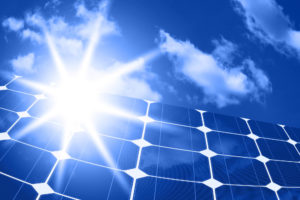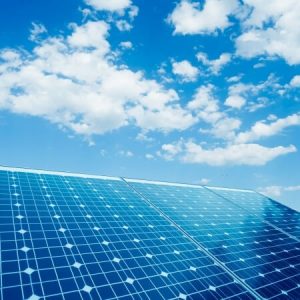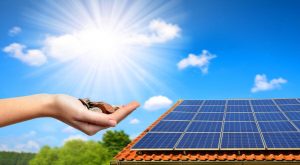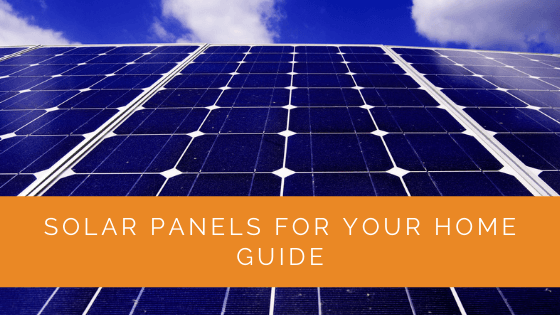Residential solar energy systems have never been more affordable, accessible, efficient, and resilient. In recent years, the prices of solar photovoltaic (PV) panels have significantly reduced, making them more accessible to a wider range of homeowners. Additionally, solar panel manufacturing and installation processes have evolved and improved significantly.
Modern residential solar panels are equipped with advanced technology that maximizes power production. As more people lean towards cleaner and greener energy sources, the adoption of solar energy has continued to increase.
More and more homeowners in the United States are embracing solar energy. This reflects a growing trend towards sustainable energy solutions and indicates that many households are now using solar energy.
If you consider installing solar panels for your home, you likely have many questions. This page aims to answer your frequently asked questions about solar installation, solar technology, and solar economics.
Contents
- 1 Key Takeaways
- 2 How Much Do Solar Panels Cost?
- 3 How Much Money Can I Save with Home Solar Panels and Net Metering?
- 4 When Will a Home Solar Panel System Break Even?
- 5 What Rebates, Tax Credits, and Other Solar Incentives Are Available?
- 6 Are Solar Panels Worth It?
- 7 How Many Solar Panels Do I Need to Run My Home?
- 8 Do I Need a Solar Battery?
- 9 Are There Home Solar Financing Options?
- 10 What Are the Best Brands of Solar Panels for Home Use?
- 11 What Are the Best Types of Solar Panels for Your Home?
- 12 How Long Do Solar Panels Last?
- 13 Can I Install My Own Solar Panels?
- 14 What Are the Different Types of Home Solar Systems?
- 15 Case Study: Residential Solar Installation
- 16 Expert Insights From Our Solar Panel Installers About Solar Panels for Your Home
- 17 Experience Solar Excellence with Us!
- 18 Conclusion
Key Takeaways
- The adoption of residential solar panels is on the rise in the US, indicating a significant shift towards sustainable energy use in homes.
- The cost of installing a home solar energy system is variable but is becoming increasingly affordable, with various incentives available to reduce the price. Solar panels can offer substantial savings on electricity bills through net metering.
- The time it takes to break even on a solar panel investment depends on several factors, including financial incentives, local electricity prices, and the amount of electricity produced. There are various incentives and financing options available to make solar panels more accessible.
How Much Do Solar Panels Cost?
The cost of your solar energy system will vary depending on factors such as size, financing or leasing options, solar permitting fees, local labor costs, and available incentives. The average cost of installing a home solar energy system has become increasingly affordable.

How Much Money Can I Save with Home Solar Panels and Net Metering?
Savings from solar panels are calculated based on the money you would have spent on electricity bills without the solar energy system. The concept of net metering allows solar system owners to receive credits from their utility company for the electricity they contribute to the grid, potentially reducing their electricity bills to zero.
When Will a Home Solar Panel System Break Even?
The break-even point for a solar panel system investment depends on various factors, including the cost of the system, financial incentives, the price of electricity in your region, the amount of electricity your system produces, and your household’s electricity usage.
Factors That Effect the Total Cost of Installing a Solar Panel System
Value of Financial Incentives
Rebates, tax breaks, tax exemptions, and performance payouts can significantly reduce the overall cost of acquiring solar energy.
The Price of Electricity in Your Region
The higher the utility price, the more cost savings you will gain.
Amount of Electricity Produced On-site
Factors such as local climate effects, roof orientation, equipment choice, etc., can affect the amount of electricity your system. If you produce significantly lower amounts than your energy requirements, it will take longer to break even.
Electricity Usage
The higher your electricity requirements and bills are, the shorter your payback period will be, provided you produce an amount the same as or close to your energy requirement.
The average solar payback period is between 4 and 10 years.
What Rebates, Tax Credits, and Other Solar Incentives Are Available?
These will vary depending on the state and where you live. However, the most important one is the federal tax credit. The federal tax credit allows solar system owners to deduct 30% of their system’s cost from their taxes between 2022 and 2032.
Some states offer a market-based incentive known as Solar Renewable Energy Credits (SRECs), which earns you one credit every time you generate 1000 kWh (or 1 MWh).
Various states and municipalities, including property tax credits, additional state tax credits, rebates, grants, and financing programs provide many other additional incentives.
Are Solar Panels Worth It?
Rebates, tax breaks, tax exemptions, performance payouts, and other incentives can significantly reduce the overall cost of acquiring a solar energy system. The most notable is the federal tax credit, which deducts a percentage of your system’s cost from your taxes.
How Many Solar Panels Do I Need to Run My Home?
The number of panels you need depends on your household’s energy requirements, the quality of equipment, and the amount of sunlight your home receives.
Do I Need a Solar Battery?
Investing in a solar battery can be beneficial, especially in areas without net metering or with frequent power outages. Some states offer incentives for solar batteries.

Are There Home Solar Financing Options?
There are several financing options available for home solar systems, including solar loans, solar leases, and Power Purchase Agreements (PPAs). These options provide different benefits in terms of ownership, incentives, and long-term savings.
Solar Leases and Power Purchase Agreements (PPAs)
This is the same as renting the solar system. You will be entitled to use the system after signing a contract with the solar leasing company. Still, you won’t own it, meaning you aren’t entitled to tax benefits and other incentives.
In the long-term, you will achieve much lower energy cost savings than buying with cash or through a loan. Perhaps the only advantage is that you don’t have to deal with the upfront and maintenance costs.
What Are the Best Brands of Solar Panels for Home Use?
There are many companies out there currently making solar panels. However, only a few have stood in terms of producing high-quality solar panels. Some of these top solar panel brands include:
- Sunpower
- LG
- Panasonic
However, due to their position in the market, the above brands come with high price tags. You can still find quality solar panels from tier-1 manufacturers at a more affordable price. These include:
- Silfab
- Q CELLS
- JinkoSolar
- Canadian Solar
- Trina Solar
What Are the Best Types of Solar Panels for Your Home?
Monocrystalline solar panels are popular for residential use due to their high efficiency and aesthetic appeal. They have become more affordable over the years.
How Long Do Solar Panels Last?
Solar panels have a long lifespan, often with warranties of at least 25 years. Some panels continue to function efficiently for much longer.
Can I Install My Own Solar Panels?
DIY solar panel installation is possible but comes with risks and potential downsides, such as voiding warranties and missing out on certain incentives.

What Are the Different Types of Home Solar Systems?
There are three main types of residential solar systems. But first, it is important to note that all solar photovoltaic systems have the same essential components (solar panels, solar inverters, and racking equipment). They all have the same purpose – to convert solar energy into electricity.
That said, the significant difference in the following three types of residential solar systems lies in how closely they are linked to the traditional power utility infrastructure, also referred to as the grid.
Grid-tied Solar Systems
Grid-tied solar systems are the most prevalent type of residential solar system. In this system, the solar panels are connected to the power utility grid.
When the solar panel produces more energy than the household requires, the excess energy is sent to the power grid. And when solar electricity production is low, the home utilizes power from the grid.
Hybrid Solar Systems
In Hybrid solar systems, the solar panels are connected to the power grid and the battery. When there is excess energy, it is directed to the battery, where it is stored for later use.
Besides providing energy when solar energy production is low, hybrid solar systems can also be a backup power supply during blackouts. These systems are particularly popular in areas without net metering and frequent blackouts.
Off-grid Solar Systems
As the name suggests, off-grid solar systems aren’t connected to any power utility infrastructure. They are ideal for homes in remote locations, which is why they are rare.
To ensure sustainability and reliability, these systems comprise large solar systems and large-capacity batteries.
Case Study: Residential Solar Installation
Background
The Smith family, residing in Albany, New York, decided to transition to solar energy to reduce their electricity bills and contribute to environmental sustainability. They were motivated by the decreasing cost of solar panels and the availability of financial incentives, including federal tax credits.
Project Planning and Objectives
The primary goals of the Smith family were:
- To reduce their monthly electricity bills.
- To have a positive environmental impact by reducing their reliance on fossil fuels.
- To take advantage of available financial incentives to offset the installation costs.
They engaged Solar Panels Network USA to help them navigate the complexities of solar installation and ensure a smooth transition to renewable energy.
Implementation
Initial Consultation and Site Assessment
Solar Panels Network USA began with a comprehensive site assessment to evaluate the roof’s suitability for solar panels. Factors such as roof orientation, shading, and structural integrity were examined. The team also reviewed the Smith family’s electricity usage patterns to determine the optimal system size.
System Design and Permitting
Based on the site assessment, a grid-tied solar system was recommended. This system would allow the Smiths to remain connected to the local utility grid, providing backup power during periods of low solar production and enabling them to benefit from net metering.
Solar Panels Network USA handled the entire permitting process, ensuring compliance with local regulations and building codes. This included:
- Submitting detailed plans to the Albany building department.
- Coordinating with the local utility company for grid interconnection.
- Scheduling inspections as required.
Installation
The installation process was completed efficiently, with minimal disruption to the Smith family’s daily routine. High-efficiency monocrystalline solar panels were installed, chosen for their superior performance and aesthetic appeal. The installation included:
- Mounting the solar panels on the roof.
- Installing an inverter to convert the generated DC electricity to AC.
- Connecting the system to the home’s electrical panel and the utility grid.
Inspection and Commissioning
Following installation, the system underwent a final inspection to ensure it met all safety and performance standards. Once approved, the system was commissioned, and the Smith family began generating their own solar power.
Results and Benefits
Financial Savings:
- The Smith family saw an immediate reduction in their electricity bills. With the net metering arrangement, they earned credits for excess energy produced, further lowering their costs.
- The federal tax credit significantly reduced the upfront cost of the system, making the investment more affordable.
Environmental Impact:
- By switching to solar energy, the Smith family reduced their carbon footprint, contributing to cleaner air and a healthier environment.
Energy Independence:
- The grid-tied system provided reliability and peace of mind, knowing they had a sustainable energy source while still being connected to the utility grid for backup.
Increased Property Value:
- Installing solar panels increased the value of the Smith family’s home, making it more attractive to future buyers interested in energy-efficient properties.
Summary
The Smith family’s transition to solar energy in Albany, New York, highlights the benefits of residential solar installations. By leveraging available financial incentives and choosing a reputable solar provider like Solar Panels Network USA, they successfully reduced their electricity costs, contributed to environmental sustainability, and increased their home’s value. This case study underscores the importance of professional guidance in navigating the complexities of solar installation, ensuring a smooth and beneficial transition to renewable energy.
Expert Insights From Our Solar Panel Installers About Solar Panels for Your Home
The cost of solar panels has significantly decreased over the past few years, making it more accessible for homeowners to switch to renewable energy. This trend is a game-changer for those looking to reduce their carbon footprint and save on energy bills.
Choosing the right type of solar panel system, whether grid-tied, hybrid, or off-grid, depends on your specific energy needs and location. Consulting with a professional can help you make the best decision to maximize your solar investment.
Understanding the available financial incentives and rebates is crucial. These can significantly reduce the upfront costs of installing solar panels and shorten the payback period, making solar energy a more viable option for many homeowners.
Experience Solar Excellence with Us!
Trust in Solar Panels Network USA, where our seasoned experts deliver top-quality solar solutions for homes and businesses nationwide. With a legacy of countless successful installations and a commitment to sustainable energy, we’re your reliable partner in the solar journey. Ready for a brighter, eco-friendly future? Call us now at (855) 427-0058 and harness the power of the sun!
Conclusion
Hopefully, this article has helped answer some of the most pressing questions you previously had about your home’s solar panels.
As you can see, there are many reasons why solar panels are a worthwhile investment in today’s world. Instead of dealing with unnecessarily high electricity bills and frequent blackouts, why not produce your own renewable energy while still helping the environment?
About the Author
Solar Panels Network USA stands at the forefront of solar energy solutions, driven by a team of seasoned solar engineers and energy consultants. With over decades of experience in delivering high-quality solar installations and maintenance, we are committed to promoting sustainable energy through customer-centric, tailored solutions. Our articles reflect this commitment, crafted collaboratively by experts to provide accurate, up-to-date insights into solar technology, ensuring our readers are well-informed and empowered in their solar energy decisions.

